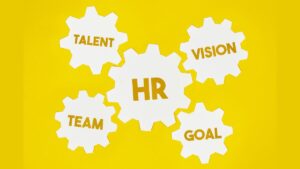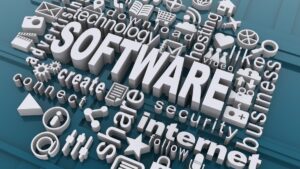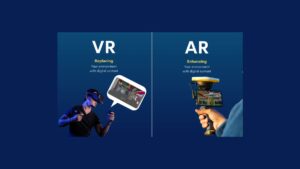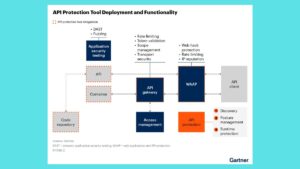How AI is HR’s Greatest Opportunity for Growth

Artificial Intelligence (AI) is rapidly transforming various business functions, and Human Resources (HR) is no exception. As organizations increasingly recognize the value of AI, HR departments have a unique opportunity to leverage this technology for growth and improvement. From streamlining administrative tasks to enhancing employee experiences and driving strategic decision-making, AI offers numerous benefits for HR. This blog explores how AI is HR’s greatest opportunity for growth, highlighting key areas where AI can make a significant impact.
1. Automating Routine Tasks
One of the most immediate benefits of AI in HR is its ability to automate routine and repetitive tasks. This includes:
- Resume Screening: AI-powered tools can quickly analyze and filter resumes, identifying candidates that match job requirements and reducing the time spent on manual screening.
- Employee Onboarding: Automation can streamline the onboarding process by managing documentation, scheduling training sessions, and providing new hires with essential information.
- Administrative Tasks: AI can handle various administrative tasks, such as scheduling meetings, managing payroll, and processing leave requests, freeing up HR professionals to focus on more strategic activities.
2. Enhancing Recruitment and Talent Acquisition
AI has the potential to revolutionize recruitment and talent acquisition by:
- Predictive Analytics: AI can analyze historical data to predict future hiring needs, helping HR teams plan and recruit more effectively. Predictive analytics can also identify candidates who are likely to succeed in specific roles based on their skills and experience.
- Candidate Experience: AI-driven chatbots can provide candidates with real-time responses to their inquiries, schedule interviews, and offer personalized feedback, improving the overall candidate experience.
- Talent Sourcing: AI can enhance talent sourcing by analyzing social media profiles, online portfolios, and other data sources to identify potential candidates and passive job seekers.
3. Personalizing Employee Development
AI can play a crucial role in personalizing employee development and training by:
- Customized Learning Paths: AI can analyze employees’ skills, performance, and career goals to create personalized learning and development plans. This ensures that training is relevant and aligned with individual career aspirations.
- Skill Gap Analysis: AI can identify skill gaps within the organization and recommend targeted training programs or development opportunities to address these gaps.
- Performance Insights: AI can provide real-time insights into employee performance, helping managers and HR professionals offer timely feedback and support for continuous improvement.
4. Enhancing Employee Engagement and Well-being
AI can contribute to improving employee engagement and well-being through:
- Sentiment Analysis: AI tools can analyze employee feedback, surveys, and social media posts to gauge overall sentiment and identify areas where engagement can be improved.
- Well-being Programs: AI can help design and manage well-being programs by analyzing data on employee health and wellness, offering personalized recommendations, and tracking program effectiveness.
- Real-time Support: AI-driven chatbots and virtual assistants can provide employees with instant support for HR-related queries, benefits information, and workplace issues, enhancing their overall experience.
5. Driving Strategic Decision-Making
AI can support strategic decision-making in HR by:
- Data-Driven Insights: AI can analyze large volumes of data to provide actionable insights on various HR metrics, such as turnover rates, employee performance, and recruitment effectiveness. This data-driven approach enables HR professionals to make informed decisions and develop strategies that align with organizational goals.
- Workforce Planning: AI can assist in workforce planning by analyzing trends and predicting future workforce needs, helping HR teams plan for changes in staffing requirements and align resources with business objectives.
6. Addressing Diversity and Inclusion
AI can support diversity and inclusion initiatives by:
- Bias Detection: AI tools can identify and mitigate biases in job descriptions, recruitment processes, and performance evaluations, promoting a more inclusive and equitable workplace.
- Diverse Talent Pools: AI can help HR teams reach diverse talent pools by analyzing data and identifying new sources for recruiting candidates from underrepresented groups.
- Inclusion Metrics: AI can track and analyze diversity and inclusion metrics, providing insights into the effectiveness of diversity initiatives and helping organizations make data-driven improvements.
Challenges and Considerations
While AI presents significant opportunities for growth, HR professionals should be mindful of potential challenges, including:
- Data Privacy: Ensuring that AI systems comply with data privacy regulations and protect employee information is crucial.
- Bias and Fairness: AI systems must be carefully designed and monitored to avoid perpetuating biases or unfair practices.
- Integration: Integrating AI into existing HR processes and systems requires careful planning and management to ensure a smooth transition.
Conclusion
AI represents a powerful opportunity for growth in HR, offering solutions to streamline administrative tasks, enhance recruitment and talent acquisition, personalize employee development, improve engagement and well-being, drive strategic decision-making, and support diversity and inclusion. By embracing AI, HR professionals can unlock new levels of efficiency, effectiveness, and strategic impact. However, it is essential to approach AI implementation thoughtfully, addressing potential challenges and ensuring that AI systems are used ethically and responsibly. As AI continues to evolve, HR departments that leverage this technology effectively will be well-positioned to drive organizational success and achieve their strategic goals.







